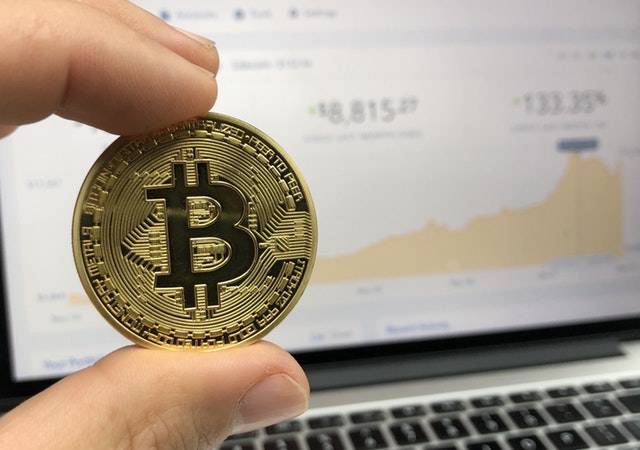Cryptocurrencies continue to take the world by storm, with values increasing and new products entering the market all the time. While Bitcoin is still the world’s biggest digital currency, it faces serious competition from Ethereum, Bitcoin Cash, and Ripple just to name a few. The rise of cryptocurrencies has been called the biggest evolution of the financial system in history, as decentralised exchanges and blockchain technology continue to change how the world views money.
While no-one knows exactly what’s in store for the crypto market for the remainder of 2018, the trending markets seen in 2017 seem to be consolidating into trading ranges across time scales. The entire cryptocurrency market is now worth over $700 billion, with much of this value belonging to just a few financial instruments.
Despite a growing number of digital coins on the marketplace, Bitcoin faces the most serious competition from Ethereum, Bitcoin Cash, and Ripple. Let’s take a look at the advantages and disadvantages of Bitcoin and see what the competition has to offer for new and seasoned investors.

Bitcoin is the originator, the world’s first cryptocurrency, the virtual coin that made everyone sit up and pay attention. With a current market cap of $150 billion, Bitcoin trading is over twice the size of its main competitor, Ethereum. This can change, however, with the market cap nothing more than the product of the total currency supply and its instant exchange rate. If either the exchange rate or the supply goes down, the market cap does too. While Bitcoin trading is still the most obvious choice for investors and traders due to its liquidity, it is facing some problems.
Slow transaction times are a serious problem for many traders, with the inefficient Bitcoin network sometimes taking hours to settle simple transactions. Bitcoin is also very bad for the environment, with the entire network using more electricity than some Western countries. This is due to how new Bitcoins are produced, with lots of computer processing time needed to “mine” new Bitcoins and keep the system ticking over.
The world’s biggest digital coin also faces issues with scalability, security, and institutional acceptance. While the environmental impact of Bitcoin is a serious concern, the slow transaction times and scalability issues inherent to the Bitcoin architecture are having the most effect on the ground.
Ethereum (ETH)

Ethereum has grown quickly to become the second biggest cryptocurrency on the block. With a current market cap of $72 billion, it is almost half the size of Bitcoin and the world’s biggest altcoin. Ethereum has a number of technological advancements over Bitcoin and other cryptos, including smart contract features.
By enabling the facilitation, creation, execution, and implementation of smart contracts, Ethereum has become very attractive to blockchain-related software developers and start-ups who want to use Initial Coin Offerings (ICOs) as a way to raise capital. These smart contracts and decentralised applications are run on a platform-specific cryptographic token called Ether. The use of Ether as a vehicle for moving around on the Ethereum platform makes it a much more powerful solution than Bitcoin and other alternatives.
These advances have seen Ethereum grow much more than its competition over recent months, with the growth and novelty of this cryptocurrency continuing to attract fresh money. The biggest disadvantage of Etherum is its volatility. While the smart contract technology used by Ethereum has made corporations interested in the real world application of this currency, the unpredictability of price movement is also keeping them away.
Bitcoin Cash (BCH)

Bitcoin Cash is a newcomer on the market, with this altcoin made in 2017 to address the scalability shortcomings inherent in Bitcoin. Despite its infancy, this cryptocurrency has grown quickly and has a current market cap of $25 billion. Bitcoin and Bitcoin Cash continue to operate alongside one another, with their simultaneous yet separate nature highlighting the growing complexity of the cryptocurrency space. While Bitcoin Cash inherited the ledger of Bitcoin transactions prior to August 2017, it now uses bigger blocks for transactions.
The use of bigger blocks for transactions comes with a number of related advantages, including faster transaction speeds and greater network efficiency. The advantages offered by Bitcoin Cash have proved to be a real threat to Bitcoin, which continues to suffer from performance issues. Bitcoin Cash is still suffering from a lack of long-term acceptance, however, with the centralised nature of this cryptocurrency often seen as being manipulated and unnecessary.
Ripple (XRP)

Ripple has become the third biggest cryptocurrency in the world after Bitcoin and Ethereum. Its current market cap is worth about $30 billion, with this digital coin based on a consensus ledger that doesn’t need mining. This feature alone is extremely worthy because it reduces the need for computing power, reducing environmental damage and minimising network latency. Ripple believes that “distributing value is a powerful way to incentivize certain behaviours”, with this altcoin planning to distribute itself primarily through business deals.
Ripple offers a number of advantages over Bitcoin and other cryptocurrencies, with its user-friendly feature set allowing for easier integration with banks and financial services. Transaction speeds are a big reason for its growing acceptance, with Ripple transaction confirmations taking 5 seconds compared to Bitcoin’s 10 minutes. There are some disadvantages associated with XPR, however, with its consensus architecture and pre-mined status often seen as a problem due to the number of coins owned by Ripple themselves.
Cryptocurrency regulation in Australia
Cryptocurrency regulation is in its early days in Australia, with new laws for digital currency exchange (DCE) providers recently implemented by AUSTRAC. The new regulations applied to Bitcoin and other digital currencies will include better record keeping and improved compliance and intelligence capabilities. While regulations will always struggle to adapt to the market, these systems and controls have been designed to significantly lower the risk of criminals using digital currencies to launder money, finance terrorism, and conduct other cybercrimes.
The new regulations are unlikely to have any significant effect on retail traders, with Australia’s regulations very similar to what was implemented in the USA in 2013. While Australia will benefit from a single authority (AUSTRAC) handling regulation and enforcement, these new rules should remain completely transparent for all retail traders unless transactions involve physical currency of $10,000 or more, in which case they need to be reported to AUSTRAC.

